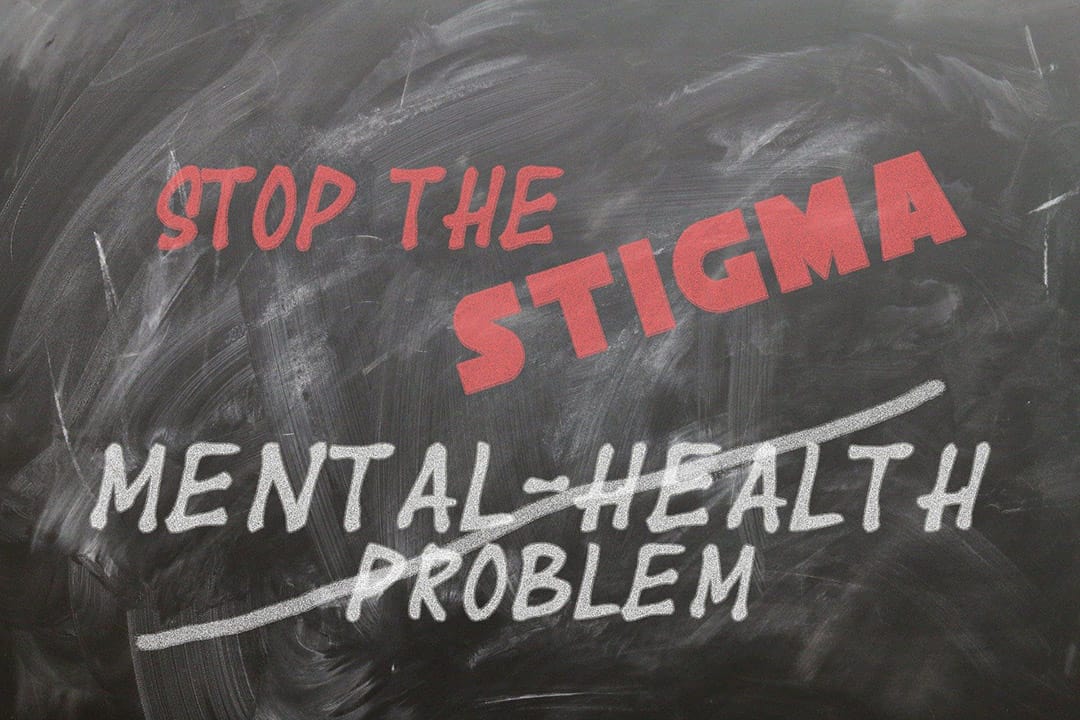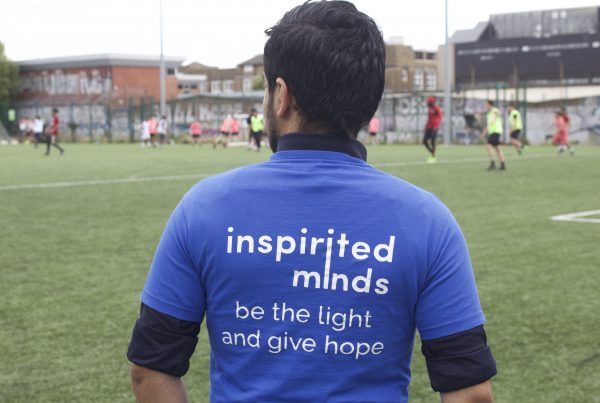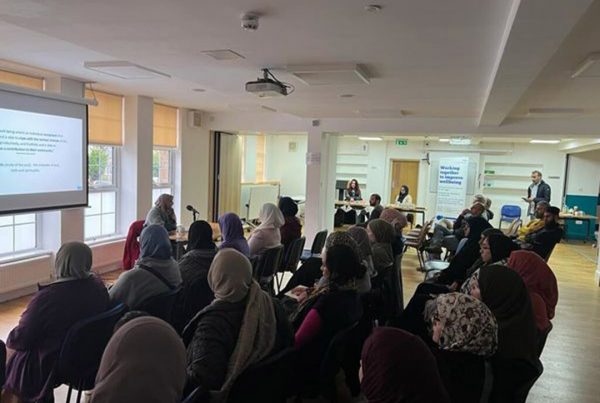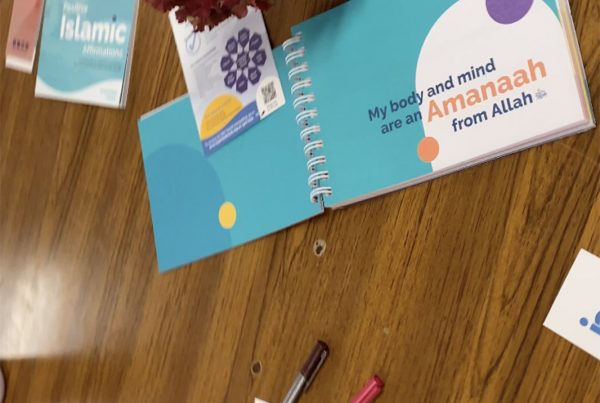Strengthening Faith Institutions (SFI) requested an ‘Imams and Faith Leaders training on Mental Health and Wellbeing’ which took place on October 3rd 2020 at 3pm, here’s our review.
Strengthening Faith Institutions (SFI) requested an Imams and faith leaders training on Mental Health and Wellbeing on October 3rd at 3pm. The workshop lasted for an hour and a half, with a Q & A session afterwards. A total of 40 people from diverse backgrounds attended the workshop. Most attendees were either faith or community leaders from various Mosques, Islamic centres and communities. The voices of community leaders and members of faith-based organisations can greatly influence attitudes about mental health conditions and those who experience them. With a sudden rise in cases of mental health related issues that people are now experiencing, there is a desperate need for our Mosques and Communities to increase awareness of Mental Health
The aim of this online webinar was to spread awareness about Mental health amongst faith and community leaders so they can cause a ripple effect from the pulpit by educating their communities. The talk was delivered by mental health trainer, ‘Warisa Zainab’ who spoke about mental health and wellbeing from a western and an Islamic perspective. The history of mental health in Islam and the approach to Islamic psychology or ‘Ilm-ul-Nafs’. The talk also covered the language and stigma around mental health in the Muslim communities and how we as community members can help and support each other.
There is a dire need for faith and community leaders to understand the significance of looking after our mental health, breaking away from the stereotypes and stigmas that exist in our society. For most people experiencing any psychological distress or mental health related difficulty, often their first point of contact is their local Imam or resident scholar at the Mosque. In times of crisis, many people turn to trusted leaders in their communities before they turn to mental health professionals. When community leaders know how to respond, they become significant assets to the overall health system.
Religion can have a large positive impact on mental health. Faith leaders play a vital role in helping the local community members help cope with their daily life struggles. For anyone approaching an Imam or community leader as their first point of contact when they are experiencing symptoms of depression, anxiety or even psychosis. If the faith or community leader is not able to distinguish between Jinn Possession or a psychological disorder then the person approaching them may not get the right support and direction to recovery.
This is why it is extremely important to understand what mental health is, what Islam and modern psychology says about psychological wellbeing. Mosques plays a significant role in connecting people and building a sense of cohesion. Research suggests that religiosity reduces suicide rates, alcoholism, drug use and helps in managing day to day stressors. If mental health providers and faith leaders collaborate and work together to help support the community, then we could see a major decrease in the number of psychological difficulties that people generally face.
Most attendees agreed that there is a big stigma around mental health even today and that most people will choose to suffer in silence, instead of seeking professional help and talking about their difficulties out of fear of being judged or ridiculed.
Some of the questions that the attendees asked were:
People feel counselling will be an answer to all their problems; spiritual and emotional. How best to respond to this?
What can we do to create a standard to embed support for the community for mental health including women and children from our mosques?
The feedback from the attendees and organisers was absolutely fantastic – they felt they have learned a lot from the webinar and would like to get further understanding of the subject.
Top Tips For Faith & Community Leaders:
- Faith and community leaders can help educate individuals and families about mental health, and make it easier for people to seek professional help when need be.
- Mosques or Islamic centres should invite mental health experts (including those who have experienced mental illness) to speak within the congregations or at community gatherings.
- Imams and Sheikhs can develop relationships with local mental health service providers, other family and youth organisations to help direct individuals and families in need to available services and support in the community.
- Train key community members within faith and community based organisations to identify the signs of depression and suicide and refer people to resources.
If you are going through a difficult time and are experiencing anything relevant to the above mentioned topic, then feel free to contact our support service including counselling. For further information please visit: Get Help
If you would like to get involved in raising awareness about mental health in your local community, we are looking to grow our outreach team to different cities around the country. We will ensure that you are fully trained and confident before running workshops & talks.
Please visit our website for more information: Vacancies




